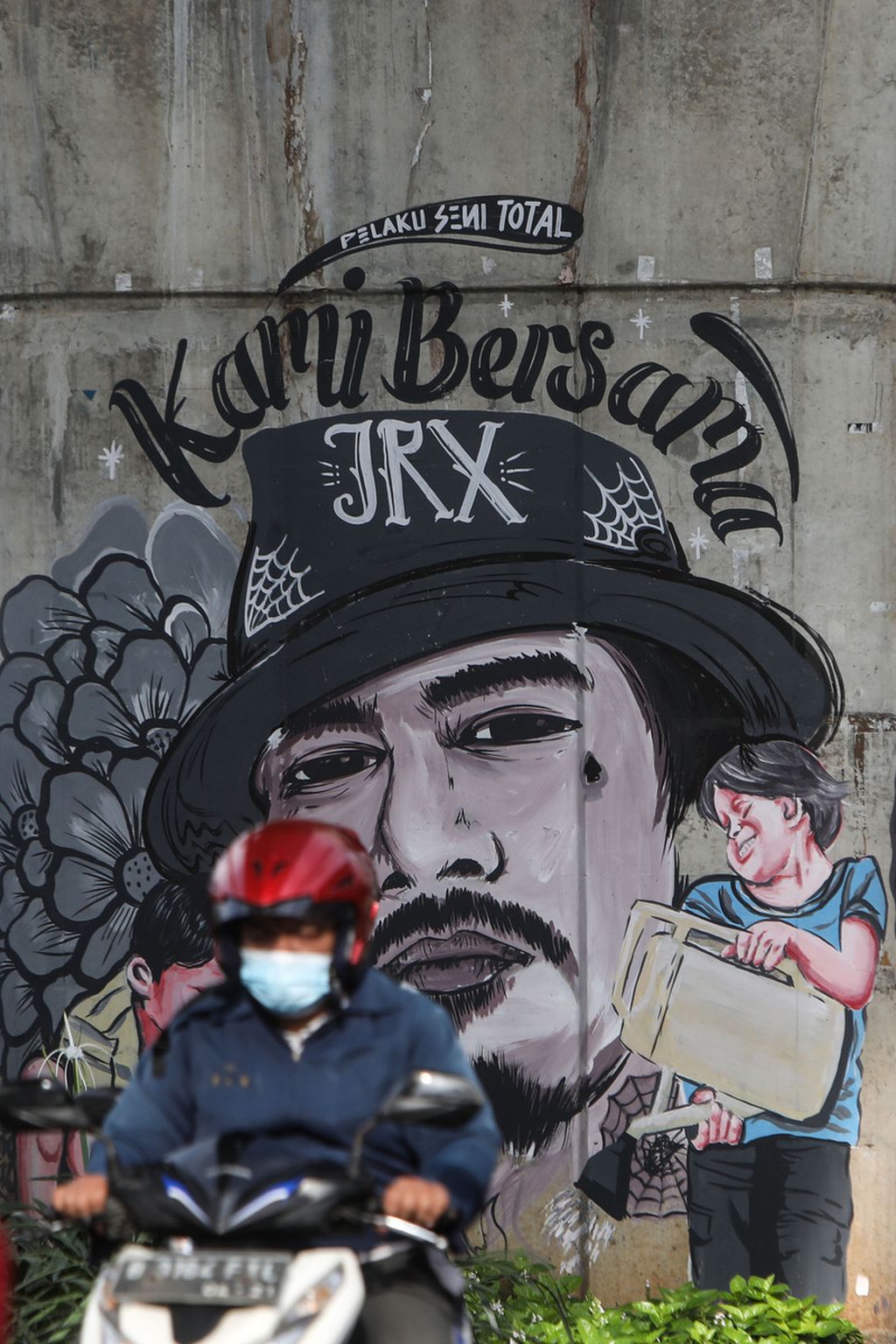The Discourse on Cyber Law Revision
In general, all the provisions in the ITE Law are practically those of cybercrime.

“The original spirit of the Electronic Information and Transactions (ITE) Law was to maintain a clean, healthy, ethical and productive cyber space of Indonesia. If its implementation gives rise to a sense of injustice, this law needs a revision. Omit vague articles with multiple interpretations that are apt to be one-sidedly interpreted.”
So was the directive of President Joko Widodo at an Indonesian Military/National Police leadership meeting at the State Palace, Jakarta, on Monday, 15 February 2021. On the same occasion, the President also urged that the police should be more selective in handling cases related to the catchall articles.
In the doctrine of criminal law, a norm called a catchall article or a provision with multiple interpretations is basically a rule not fulfilling the principle of legality that a criminal provision should be clear (nullum crimen, nulla poena sine lege certa) so that it will not result in various interpretations that are very detrimental to legal certainty.
In general, all the provisions in the ITE Law are practically those of cybercrime.
Understanding cybercrime
In the global context the term cybercrime first appeared in the document of the United Nations Congress on The Prevention of Crime and the Treatment of Offenders in Havana, Cuba, in 1990. Two terms are known: cybercrime and computer related crime. Further elucidation was contained in the background paper for the workshop of UN Congress X/2000 in Vienna, Austria.
Cybercrime is divided into two categories. First, cybercrime in a narrow sense called computer crime. Second, cybercrime in a broader sense called computer-related crime.
Still according to the background paper, cybercrime in its broader sense covers that: 1) in a computer system or network, 2) against a computer system or network, and 3) by means of a computer system or network.
Aslo read: Agency Data Vulnerable to Hacking
In the year following the UN Congress in Vienna, the Council of Europe held a Convention on Cybercrime in Budapest, Hungary, in 2001.
The convention produced five keywords as the core of cybercrime. First, illegal access, which is purposely entering or accessing a computer system unrightfully.
Second, illegal interception, which is purposely and unrightfully listening to or receiving covertly the transmission and broadcasting of computer data not of a public nature to, from or in a computer system by using a technical support device.
Third, data interference, which is purposely and unrightfully damaging, deleting or changing computer data.
Fourth, system interference, which is purposely disturbing or seriously obstructing the functioning of a computer system unrightfully.
Fifth, misuse of devices, which is misusing computer equipment, including computer programs, computer passwords, access codes.
Therefore, the criminalization of various acts is only meant for those in a computer system or network and against a computer system or network.
With reference to the manuscript of the ITE Law, in fact this law is only intended to regulate everything related to electronic information and transactions. Therefore, the criminalization of various acts is only meant for those in a computer system or network and against a computer system or network.
This is evident in the law under review that adopts the five keywords in the Convention on Cybercrime in Budapest, Hungary.
Multiple interpretations and revision urgency
However, in the further discussion of the law in question, there was the idea to include the various kinds or crime in the second book of the Criminal Code (KUHP) using the cyber world as their media in the ITE Law.
It means that what is regulated is not only cybercrime in its narrow sense or computer crime, but also cybercrime in its broader sense or computer related crime by means of a computer system or network. To be clear, a computer or cyber space or internet network functions as instrumentum delicti or an instrument/means used to commit crime.

Residents cross a mural containing anti-hoax messages on Jalan KH Hasyim Ashari, Tangerang, Banten, Monday (22/2/2021).
Unfortunately, the diverse kinds of crime scattered over several chapters of the KUHP (violations of decency, gambling, insults/defamation, extortion/threats, rousing enmity or individual or communal hatred on ethnic, religious, racial and intergroup grounds, menaces of violence of intimidation) have been included in the ITE Law (Article 27, Article 28 and Article 29) without clear and explicit elements of offense (bestandeelen delict).
In this context, what President Joko Widodo has stated that the vague articles have multiple interpretations is very accurate.
An example is Article 27 of the ITE Law on insults/defamation. The elucidation of this law is already clear. Some years later an amendment was made to the said article of the ITE Law with an explanation that what is meant by insults are as stipulated in Article 310 of the KUHP on humiliation and Article 311 of the KUHP on slander/libel.
Also read: Accelerating the Public’s Digital Literacy
Actually, insults in the KUHP are covered in Article 310 through Article 321 of the KUHP. It means that the ITE Law only accommodates humiliation and slander as indicated in the explanation, while in fact there are still other insults such as trivial insults, slanderous reports and slanderous allegations.
Insults constitute a complaint-based offense while gambling is not complaint-based.
The explanation of the said article just spoils the substance of insults itself. Besides, in Article 27 of the ITE Law, comprising four paragraphs, the types of offense in the paragraphs are different from each other. Insults constitute a complaint-based offense while gambling is not complaint-based.
There’s also Article 28 Paragraph (2) of the ITE Law, which stems from provisions on hatred (haatzai artikelen) stipulated in Article 154 through Article 157 of the KUHP. According to history, the articles originated in the British Code applied by British colonizers in India.
When Britain was in control of the Netherlands based on the Treaty of London, the articles were later adopted by the Netherlands and imposed by the principle of concordance (concordantie beginselen) on its colony, Indonesia.
In their developments some of the articles have been annulled by the Constitutional Court so that they cause legal complication. On the one hand Article 28 of the ITE Law remains valid but on the other, the source of the articles in the KUHP have partly been canceled by the Constitutional Court.
Based on the above analysis, a revision of the catchall articles in the ITE Law becomes inevitable. Yet it should also be noted that the government has been communicating the KUHP Bill since 23 February 2021 in hopes of speedy endorsement.
In the KUHP Bill, the various criminal acts in the cyber world contained in the ITE Law are already included. It means that when the KUHP Bill is endorsed, automatically those criminal provisions in the ITE Law will no longer be effective.

A mural voicing justice for the Jerink musician adorns the flyover pole on Jalan Ciledug Raya, Jakarta, Friday (19/2/2021). Jerink is currently facing legal issues related to alleged violations of Law Number 19 of 2016 concerning Electronic Information and Transactions (UU ITE).
Even the criminal penalties in the KUHP Bill related to cybercrime have been adjusted to the criminal sanctions in general so as to avoid disparity between the existing provisions in force. The reason is that imprisonment in the KUHP Bill is not the primary choice, but there are still other alternative sanctions like fines, surveillance and social work.
Implementation guidelines
Pending the ITE Law revision or KUHP Bill ratification, the important thing to do is for the National Police to issue implementation guidelines regarding the ambiguous articles. This is a follow-up to President Joko Widodo’s instruction that the National Police should be selective in handling ITE cases.
Also read: Indonesia\'s Challenge: Low Literacy, Breached Privacy
The instruction has profound significance. First, there should be common standards, including interpretations of the articles. Second, there should be no favoritism in handling ITE cases. Third, where possible, ITE cases should be settled without legal proceedings.
The virtual police declared by National Police chief Gen. Listyo Sigit Prabowo should be appreciated as a manifestation of President Joko Widodo’s directive. The virtual police not only prioritize the aspect of prevention but also mediation when such cases enter the court of law.

Eddy OS Hiariej
This is in line with the motto of Police chief Sigit, which is a National Police of Precision: Predictive, Responsible and Transparent with Justice. In connection with ITE cases, the National Police should be able to predict various possibilities of cybercrime, respond to the diverse cases and settle them in a fair and transparent way by mediating between perpetrators and victims.
This, too, is in compliance with the paradigm of modern criminal law that is oriented to corrective justice, rehabilitative justice and restorative justice.
Eddy OS Hiariej, Professor of Criminal Law, Faculty of Law, Gadjah Mada University; Deputy Law and Human Rights Minister
(This article was translated by Aris Prawira)